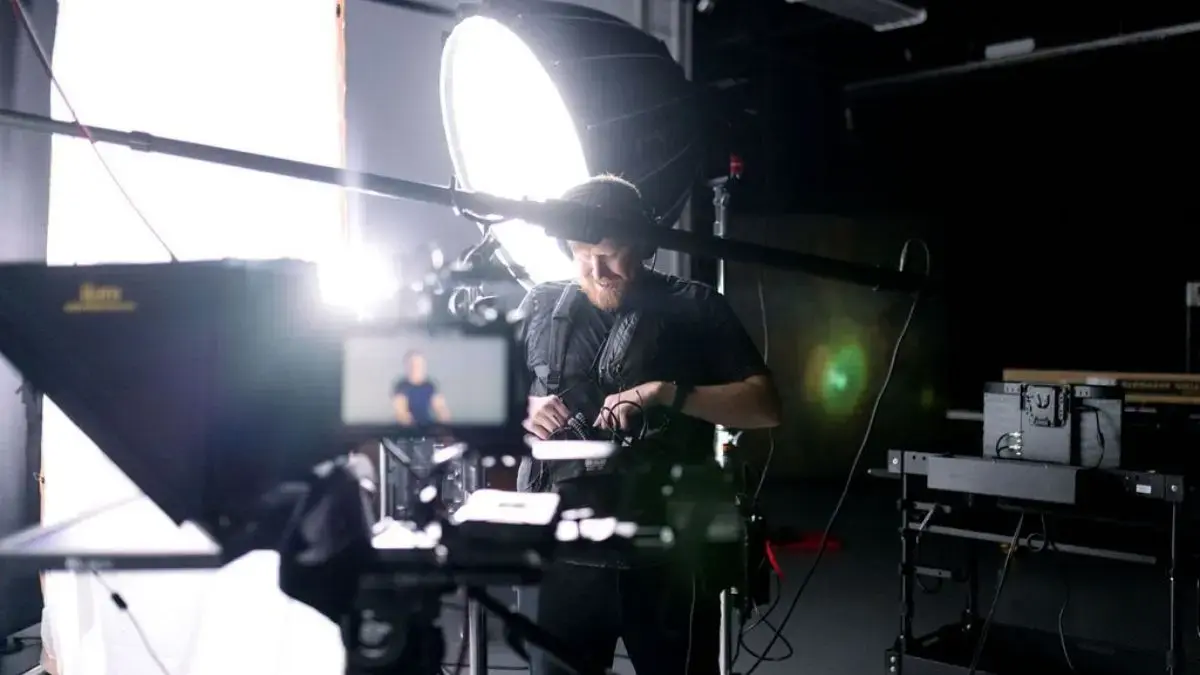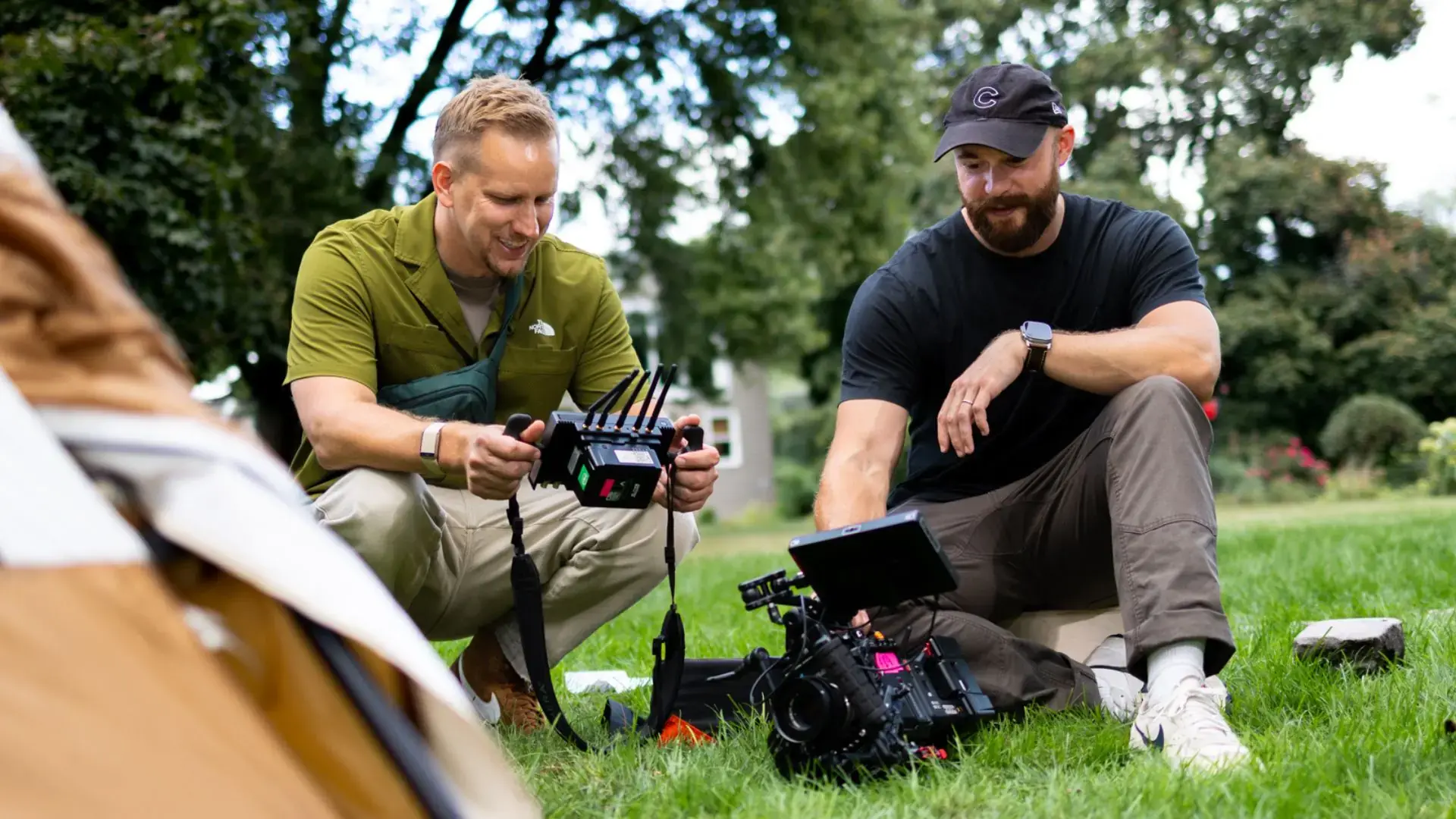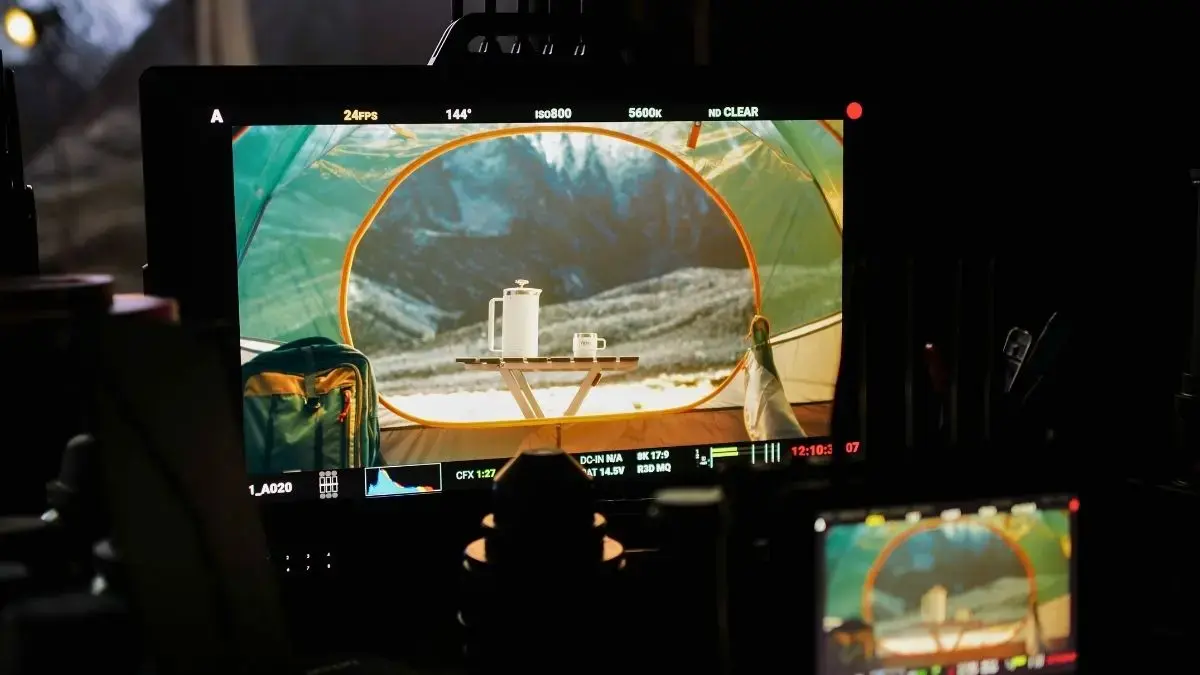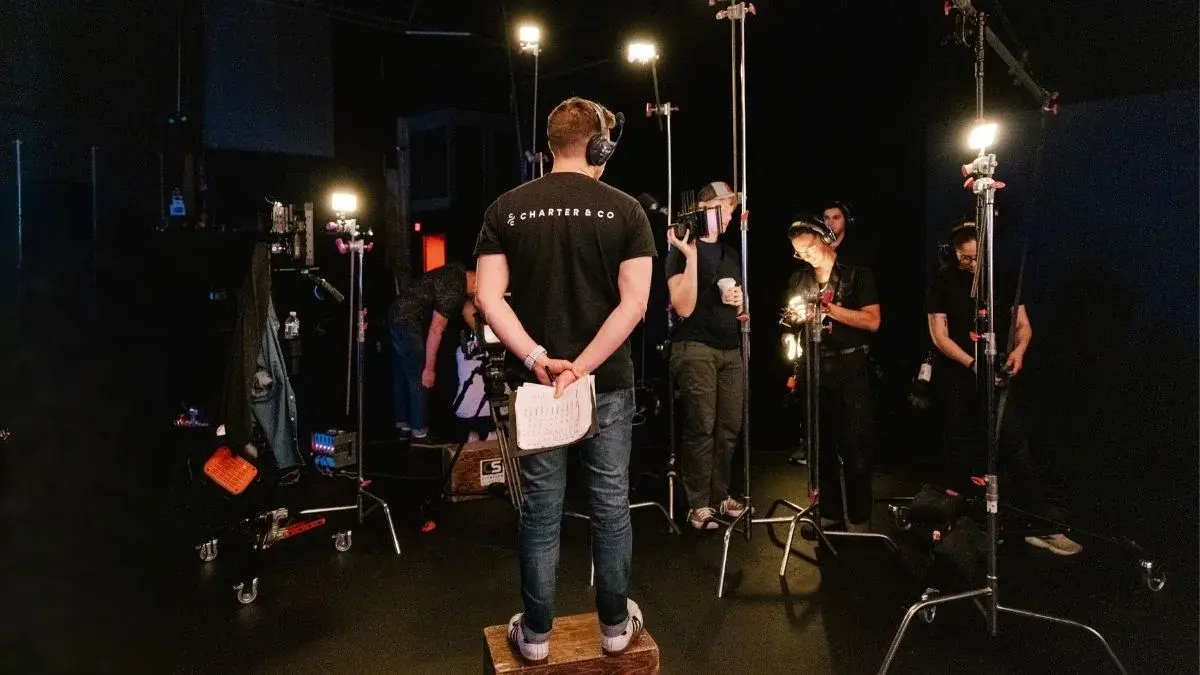How to Create a Promo Video: A Step-by-Step Guide for Businesses
Promotional videos can raise awareness for your brand, support product launches, and directly contribute to your return on investment (ROI). Best of...
▶ Video Strategy & Discovery
A video marketing strategy will keep your production cohesive and on schedule.
▶ Creative Treatments, Scripts & Storyboards
Bring your vision to life with professional scriptwriting and storyboarding services.
▶ Production Preparation
Prepare for your corporate video with professional video production services.
▶ Full Service Filming Days
Discover how Charter & Co can help you bring your vision to life through expert on-set filming services.
▶ Video Editing, Color Grading & Sound Design
Elevate your video marketing with Charter & Co’s expert video editing and post-production services.
▶ Motion Graphics
Captivate audiences with videos, ads, and social media that include high-quality animations.
▶ Licensed Music & Voiceovers
Elevate your videos with high-quality music licensing and voiceover services.
▶ Distribution Strategy & Advertising Support
Get your content noticed with a comprehensive video distribution strategy.
▶ Everything Video Marketing
Video marketing resources: What it is, why it matters, and how to do it.
▶ Everything Video Production
Your ultimate guide to video production resources: Tips and tricks for creating masterful videos.
▶ Blog
Helpful Blog resources for all of your video production and marketing needs.
5 min read
Charter & Co December 05, 2024

Video marketing is a powerful tool for reaching customers, clients, and buyers in today's digital age. However, you must plan a dependable budget for video production long before the camera rolls. This budget should balance your equipment costs, your post-production needs, and, most importantly, your marketing strategy.
Find out how to know the budget for a video production to begin your next project.
From equipment to visual effects (VFX), you have a lot to consider when budgeting for a video production. A professional video production team or a production manager can help you identify everything you'll need to budget for, including:
A high-quality video production needs high-end video gear, including high-definition (HD) cameras, comprehensive lighting, and a dependable audio setup. Consider the following options for video equipment:
During pre-production, you'll prepare your video's strategy, script, storyboard, budget, equipment, crew, props, and everything else you'll need for your project. Consider everything you hope to achieve during the next stages of video production, including particular shots and your marketing goals.
Strategies for pre-production planning and budgeting include:
Though most of the work is already finished, post-production can still drive up your budget depending on the amount of work hours needed. As a rule of thumb, one minute of footage takes approximately one hour to edit, but high-quality projects take much longer.
Many variables can increase your post-production budget. For example, let's say you want a highlight reel from a three-hour conference, and you had three cameras running at the event. Even if you only need a 30-second video, editors will still need to sift through roughly nine hours of footage to complete your task.
Factors that can inflate your video editing costs include:
With an effective promotion campaign, your high-quality videos can raise brand awareness and boost your conversion rate. There are practically endless ways to promote your video content, from display ads to paid social media promotions.
Though it may not be your top priority during pre-production, you must allocate enough funds for your marketing campaign later on. Otherwise, you could risk your project going unnoticed or being "buried" by social media algorithms.
Social media apps attract different users and demographics, making them great ways to hone in on your target audiences. Knowing the best social platforms for your marketing campaigns is essential when budgeting for video production, as you may need to distribute funds across multiple apps.
Consider the following social media platforms for your video campaigns:
Though most social media apps offer various paid promotion options, these may not always be your most effective tools. You can often get your video seen just by having a solid hook, caption, and posting strategy.
For example, a humorous TikTok video with a subtle promotion could rake in views within the app's algorithm, especially if it has high engagement rates. On the other hand, viewers may immediately scroll past your video if it's obviously an ad.
As you budget for video production, consider which videos will benefit the most from paid promotions. Similarly, as you craft your video scripts, consider ways to grab viewers in the first few seconds. This can boost your videos' rankings in social media algorithms and help them develop more views over time, even after the official promotion ends.
Short-form videos under 60 seconds dominate most social media platforms, but they don't always give you enough time to deliver your message. Still, short-form videos are the best way to get your brand, product, or service noticed. A professional video production team can work with you to brainstorm ways to tell your story in under a minute, helping it be seen by as many viewers as possible.
Of course, you may need long-form videos for certain goals, such as when sharing product demos, instructional videos, or webinar highlights. Both Instagram and Facebook let you share ads up to 120 seconds long, and YouTube ads can last multiple hours, though users can skip your ad after a few seconds. Still, with a good hook in the first six seconds, you may convince the right viewers to stick around.
Your video production budget should cover all of your production components, post-production processes, and promotion campaigns. While you can update certain aspects as you go, you should set a fixed budget early to avoid exceeding it later in the process.
Delegating to other departments and video professionals streamlines your budgeting processes, reduces costs, and gives you a comprehensive plan. For instance, the art department can identify the cheapest price ranges for items on your props list. Camera departments will consider multiple options for your goals, weighing the costs of different equipment and crew sizes.
Combine each department's and production stage's budget into one place, whether that's a binder or a Google Drive folder. Sum up the total budget and compare how each part of your budget compares to the other. The actual production will reasonably take up a large part of your budget, especially after adding in the cost of equipment, crew, food, and talent. However, you should designate enough resources for post-production and marketing — plus about 10% of your budget for contingency costs.
Once you've estimated costs for each department and production stage, compare them with your actual budget. Then consider how much of your budget you have left for marketing and paid promotions. Paid promotions are often essential for getting your video noticed, so they should be crucial parts of your budget.
Consider the social media platforms you want to promote your content on, and then compare the costs of their different ad options. In some cases, you may need to reduce your production budget to afford your marketing campaign.
You may be able to reduce your production costs by:
Adding video to your marketing budget can improve your brand, conversion rate, and online engagement. At Charter & Co, our video marketing experts can help you budget for video production without going over your limit. Talk to us today to start planning your production budget.

Promotional videos can raise awareness for your brand, support product launches, and directly contribute to your return on investment (ROI). Best of...

Travel videos offer viewers a unique slice of life, whether you're sharing your story or the destination's. However, a lot more goes into travel...

Many mid-market businesses in Chicago are actively looking for the right video partner to level up their video marketing strategy. However, not all...